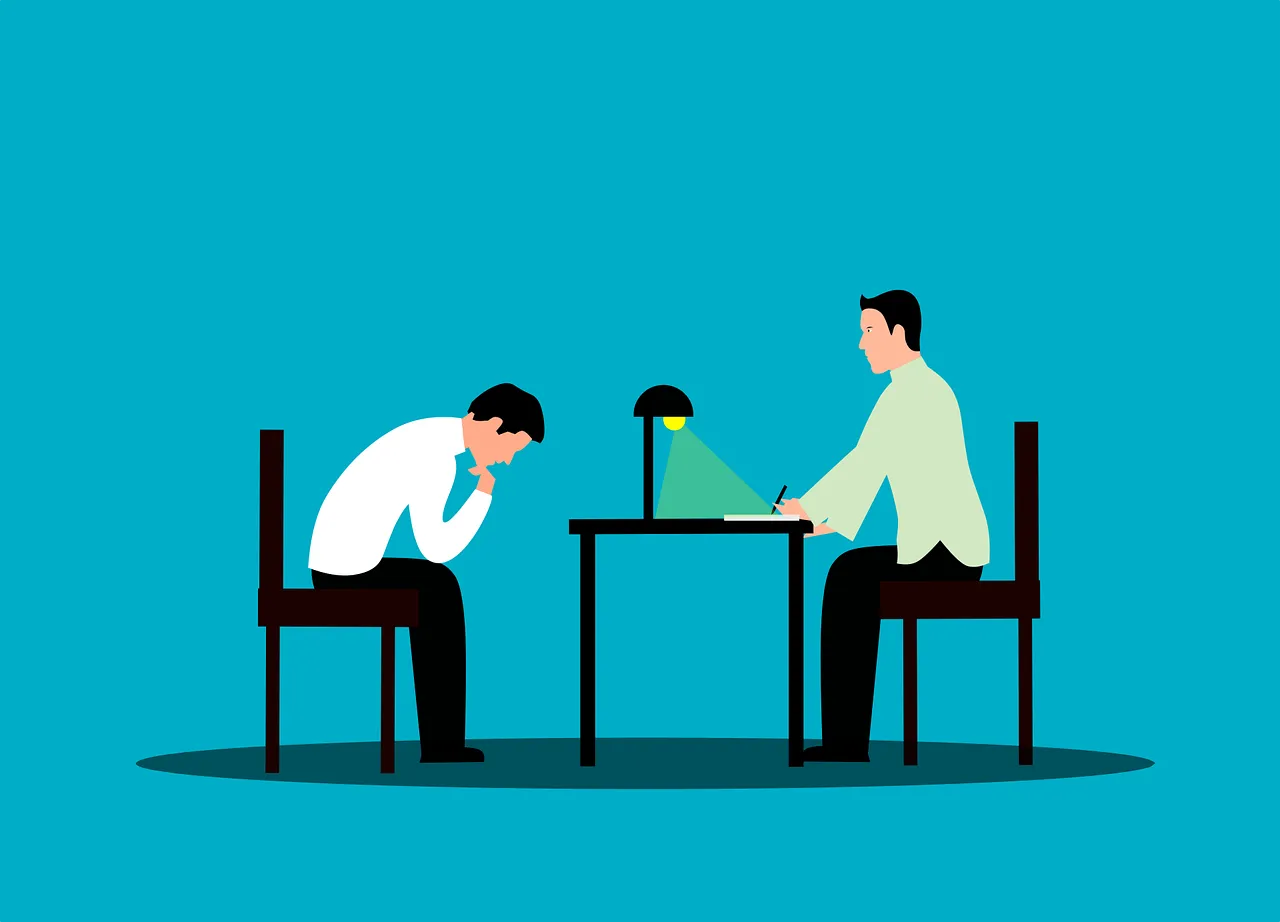Anxiety and depression affect each of us in different ways, and most of us will experience these feelings at least once in our lives.
Right now, millions of people worldwide are struggling with depression—a condition that can leave you feeling helpless, cause persistent sadness, and interfere with your everyday life.
However, like any problem, depression has solutions. You can manage and overcome your mood swings through proper treatment, therapy, and lifestyle changes.
If you think the only solution is antidepressants, you’re not alone—I made the same mistake. But you don’t have to.
In this guide, I’ve outlined 20 steps that will help you on your journey to recovery.
These tips won’t fix things overnight, but with patience, they can gradually shift your mindset, increase your energy, and help you find happiness again.
Take your time with this guide, and really understand each point before moving forward.
The Ultimate Guide To Get Rid Of Depression & Anxiety 2026

1. Improve Your Sleep to Combat Depression and Anxiety
More than 35% of the world’s population suffers from insomnia. Research has shown that poor sleep is linked to both depression and a lower quality of life.
It’s a two-way street: depression can trigger insomnia, and sleepless nights can make depression worse. If you want to improve your mood and reduce anxiety, improving your sleep is a crucial first step.
While it may be tempting to rely on sleeping pills, they often mask the problem. Instead, consider trying therapies like cognitive-behavioral therapy (CBT) or dialectical behavior therapy (DBT) to help address sleep issues.
Consulting a therapist or doctor can also help rule out any emotional or medical conditions that might be causing your insomnia.
Once you identify the root cause of your sleep problems, you can take steps to fix them.
A simple way to start is by turning off all electronics by 9:00 p.m. and reading a book before bed. Small lifestyle changes like these can make a big difference in improving your sleep quality.
2. Improve Your Diet to Support Mental Health
Your diet doesn’t just affect your physical health—it plays a major role in your mental well-being. In fact, there’s a whole field called nutritional psychiatry that focuses on how food impacts our brains.
What you eat influences how you feel, so improving your diet is essential to overcoming depression.
To boost your mental health, increase your intake of fruits, green vegetables, olive oil, and foods rich in antioxidants.
On the flip side, try to avoid foods like refined grains, sugar, red meat, and high-fat dairy products, which have been linked to an increased risk of depression.
Certain vitamins and minerals, like magnesium and Vitamin D, are also known to improve mood.
Adding superfoods like blueberries, acai berries, seaweed, and dark chocolate to your diet can give you a natural mood boost.
3. Exercise Regularly to Release “Happy” Chemicals

Exercise is one of the most effective ways to combat depression.
When you work out, your body produces chemicals like serotonin and endorphins, which are known as “happy” chemicals that improve mood and reduce feelings of anxiety.
Start with simple exercises like walking for 40 minutes a day, stretching, or practicing yoga. If you’re feeling more adventurous, join a fun class like salsa dancing or swimming.
The key is to find activities you enjoy so that exercising doesn’t feel like a chore.
Even small lifestyle changes—like choosing to take the stairs instead of the elevator or walking to the store instead of driving—can increase your movement and boost your mental health over time.
4. Structure Your Daily Routine to Reduce Stress
When you’re dealing with depression, even small decisions—like what to eat for lunch—can feel overwhelming.
One way to cope is by organizing your week ahead of time. Structuring your daily routine helps reduce the pressure of making decisions on the spot and prevents you from feeling panicked or stressed.
For example, you could plan your meals and create grocery lists in advance. Setting up a consistent routine can help you feel more in control and reduce the unpredictability that often fuels anxiety.
By making your schedule predictable, you give your nervous system a chance to stay calm and balanced.
5. Rediscover Activities That Make You Happy

Think about activities that used to bring you joy—like swimming, painting, or crafting.
When we’re depressed, we often abandon the things that once made us feel good. Now is the time to start incorporating those activities back into your life.
It might feel hard at first, but try to make time for things you once loved.
Even small actions, like picking up a paintbrush again or going for a swim, can help reignite a sense of positivity and energy.
6. Identify and Manage Your Stress Triggers
Stress is one of the leading causes of depression, so learning how to manage it is crucial.
While it’s impossible to eliminate stress completely, you can reduce it by identifying the things that trigger your anxiety. It could be certain people, places, or activities.
Once you identify these stressors, take steps to avoid or minimize them.
In addition to avoiding triggers, practice relaxation techniques like deep breathing, meditation, or yoga. These exercises help calm your mind and reduce feelings of overwhelm.
7. Stay Connected with Friends and Family

One of the hardest parts of depression is the tendency to isolate yourself.
It can feel easier to retreat into your own world and avoid others. But staying connected to the people who care about you is key to overcoming depression.
Even if you don’t feel like socializing, make an effort to reach out. Start small with a text message or a phone call.
Gradually, you’ll feel more comfortable reconnecting with loved ones and breaking out of the isolation cycle.
8. Get Sunlight and Vitamin D Daily
Spending too much time indoors can make depression worse. Aim to spend at least 15 minutes a day in direct sunlight to boost your Vitamin D levels.
If you live in a place with limited sunlight, consider light therapy, which mimics natural sunlight and can help improve your mood.
Many people in colder climates experience seasonal affective disorder (SAD) due to a lack of sunlight.
Special “SAD lights” are designed to provide enough light to boost your mood and reduce feelings of depression.
9. Stay Hydrated to Support Brain Function
Dehydration can worsen symptoms of anxiety and depression by reducing your brain’s energy levels and increasing stress.
Make sure you’re drinking plenty of water throughout the day to stay hydrated and keep your brain functioning optimally.
Avoid sugary drinks, which don’t hydrate your body in the same way as water.
Keeping your brain and body hydrated can help you think more clearly and reduce feelings of fatigue and stress.
10. Challenge Negative Thoughts

When you’re depressed, it’s easy to fall into a pattern of negative thinking.
These negative thoughts can cloud your mind and make it hard to see any positives.
One way to break this cycle is by consciously challenging your negative thoughts and replacing them with more positive ones.
While it’s not easy at first, with practice, you can learn to filter your thoughts and focus on the good rather than the bad. Over time, this shift in mindset can help reduce feelings of anxiety and depression.
11. Keep Your Body Warm to Stay Relaxed
Cold temperatures can increase tension and anxiety. When your body is cold, your nervous system can become stressed, leading to feelings of overwhelm.
Keeping your body warm with hot drinks like tea or soup can help you stay relaxed and calm.
In colder climates, make sure you’re dressed warmly and stay cozy indoors. Keeping your body warm can help reduce physical tension and improve your mental state.
12. Join Community Activities to Stay Connected
Getting involved in community activities can help reduce feelings of loneliness and isolation.
Whether it’s joining a club, participating in local events, or volunteering, these activities allow you to meet new people and stay connected with others.
Social engagement is key to improving mental health, so try to attend social gatherings, parties, or even family events when you can.
The more connected you are to your community, the less isolated you’ll feel.
13. Helping Others Can Boost Your Mood
Helping others, whether it’s volunteering at a shelter or simply lending a hand to a friend, can make you feel better about yourself.
Studies show that acts of kindness can reduce anxiety and improve mood.
Look for opportunities to help people or animals in need. Not only will you be making a positive impact on others, but you’ll also be boosting your own mental well-being.
14. Explore Spirituality to Find Inner Peace

If traditional therapies aren’t working, exploring spirituality can be a helpful option.
Sometimes, believing in something greater than ourselves can provide comfort and hope. Spiritual practices like meditation, prayer, or even yoga can help calm your mind and provide a sense of peace.
Spirituality doesn’t have to be religious. It’s about finding a belief or practice that helps you feel grounded and hopeful.
Many people find that incorporating spiritual practices into their daily lives helps them cope with anxiety and depression.
15. Start Practicing Self-Love
Depression can often make us feel unworthy or undeserving of love. To break this cycle, it’s important to start practicing self-love.
Make time for the things that make you happy, and prioritize your needs. This could be as simple as taking a relaxing bath, reading a good book, or indulging in your favorite hobby.
When you start treating yourself with kindness and respect, you’ll begin to feel better about yourself.
As the saying goes, “You can’t pour from an empty cup”—taking care of yourself is the first step to improving your mental health.
16. Express Your Feelings Through Writing

If talking to others feels too difficult, try journaling as a way to express your feelings.
Writing can help you process your emotions and release any pent-up thoughts or worries. Journaling allows you to reflect on your experiences and find peace through self-expression.
Over time, keeping a journal can help you understand your triggers, track your progress, and provide a safe space for self-reflection.
17. Do the Opposite of What Depression Tells You
Depression often tells you to withdraw, avoid people, or stop doing things you love.
The best way to fight this is to do the exact opposite of what your depressed mind tells you.
If your mind is telling you to stay inside, make an effort to go outside. If you feel like isolating yourself, reach out to a friend.
Taking small steps to defy these negative urges will help you build resilience and reduce feelings of anxiety. Each time you push back against depression, you’re strengthening your mental health.
18. Consider Getting a Pet
Pets can provide unconditional love and companionship. If you’re feeling lonely or isolated, having a pet can bring joy and purpose back into your life.
Pets rely on you for care, and that sense of responsibility can help lift your spirits.
Whether you’re walking your dog, feeding your cat, or playing with your pet, these small interactions can reduce stress and boost your mood.
19. Don’t Let One Bad Experience Define Your Future
Life is full of ups and downs, and everyone faces setbacks.
Losing a job, going through a breakup, or experiencing a personal failure can make you feel like everything is falling apart.
However, it’s important not to let one bad experience define your entire future.
Instead of focusing on the negative, try to learn from the experience and plan for a better future. Time heals all wounds, and better days are ahead.
20. Seek Professional Help If Needed

While these self-help steps can make a big difference, there’s no shame in seeking professional help if your depression persists.
Therapy or counseling can provide you with the tools and support you need to manage your emotions and improve your mental health.
Reaching out for help is a sign of strength, not weakness. You don’t have to go through this alone.
FAQs
Clinical depression is a condition that affects the ability to think negatively, and it affects our ability to feel pleasure. In contrast to normal sadness that disappears after some time, clinical depression is persistent and can last for years if not treated.
Here are a few of the significant symptoms of depression: Sudden gain or loss of weight due to changed diet. Lack of energy. Increased fatigue. Constant irritability from small things. Change in sleeping style and patterns. Lack of interest in pleasure activities. Difficulty in making decisions. Feeling worthless and hopeless.
Production of Estrogens and progesterone decreases and slowly stops during menopause, and egg productions also stop that cause lack of periods. As per the experts during the transition to menopause, women are at higher risks of depression. It is because of the sudden change in estrogens and progesterone productions. ‘ What is clinical depression?
What are the symptoms of depression?
Is it true that menopause can cause depression?
Quick Links:
- Ways To Improve Your Money Confidence
- Top Best Jim Kwik Quotes From Limitless
- How To Build A Schedule For Effective Learning That Brings Results
- How To Be More Confident (Boost Self Confidence To NEXT Level)
- Best Inspirational Quotes for Writers Related To Craft and Business
Conclusion: Overcoming Depression & Anxiety 2026
These self-help steps are designed to guide you toward recovery, but they won’t magically change things overnight.
They are small, actionable steps that, when practiced consistently, can bring about significant positive changes in your life.
If you’ve tried everything and your symptoms are getting worse, don’t hesitate to seek professional help.
Remember, you are not alone. Millions of people are going through similar struggles, and with the right support, you can overcome this difficult time.
Take it one step at a time, and trust that healing is possible.
